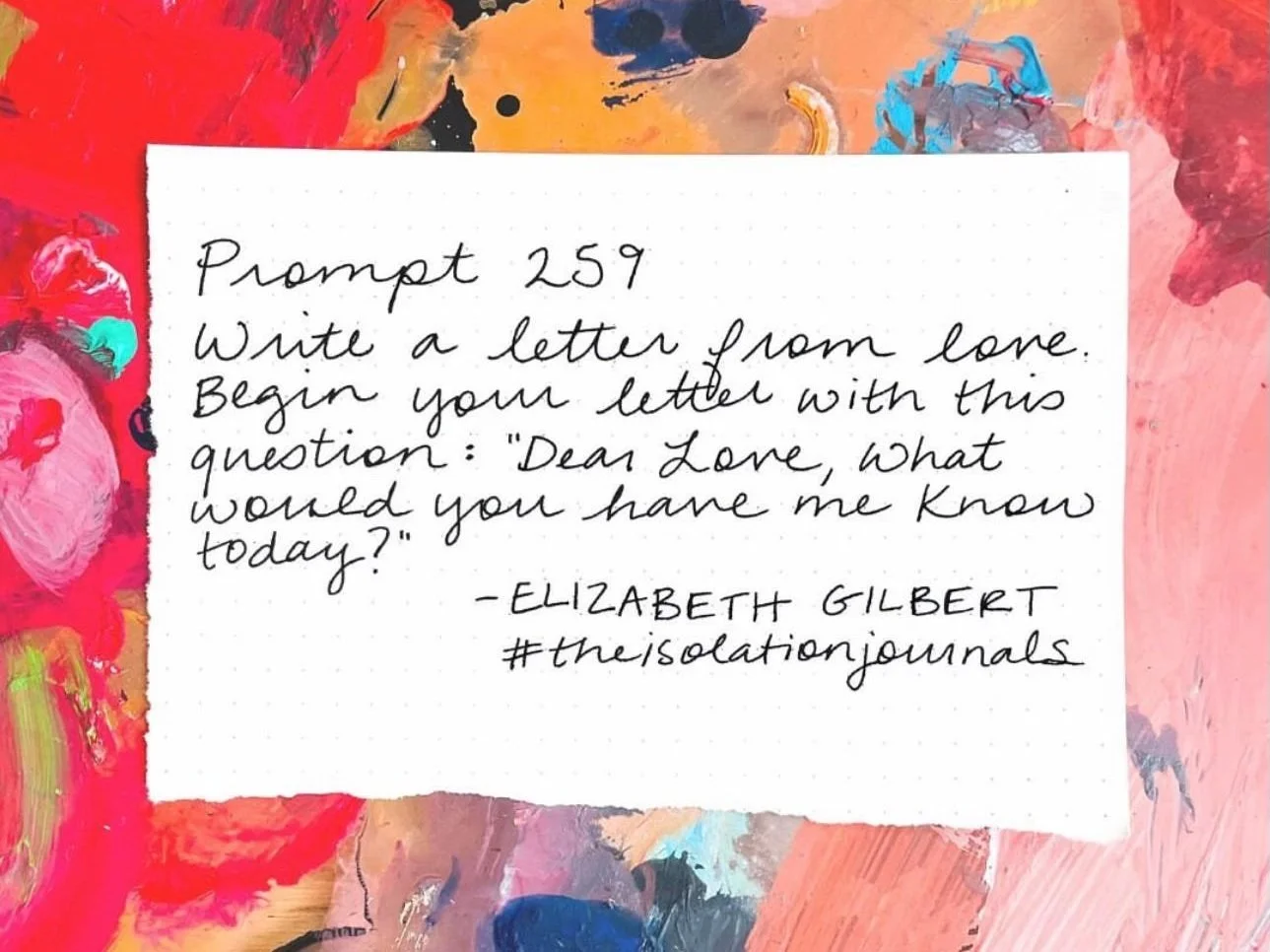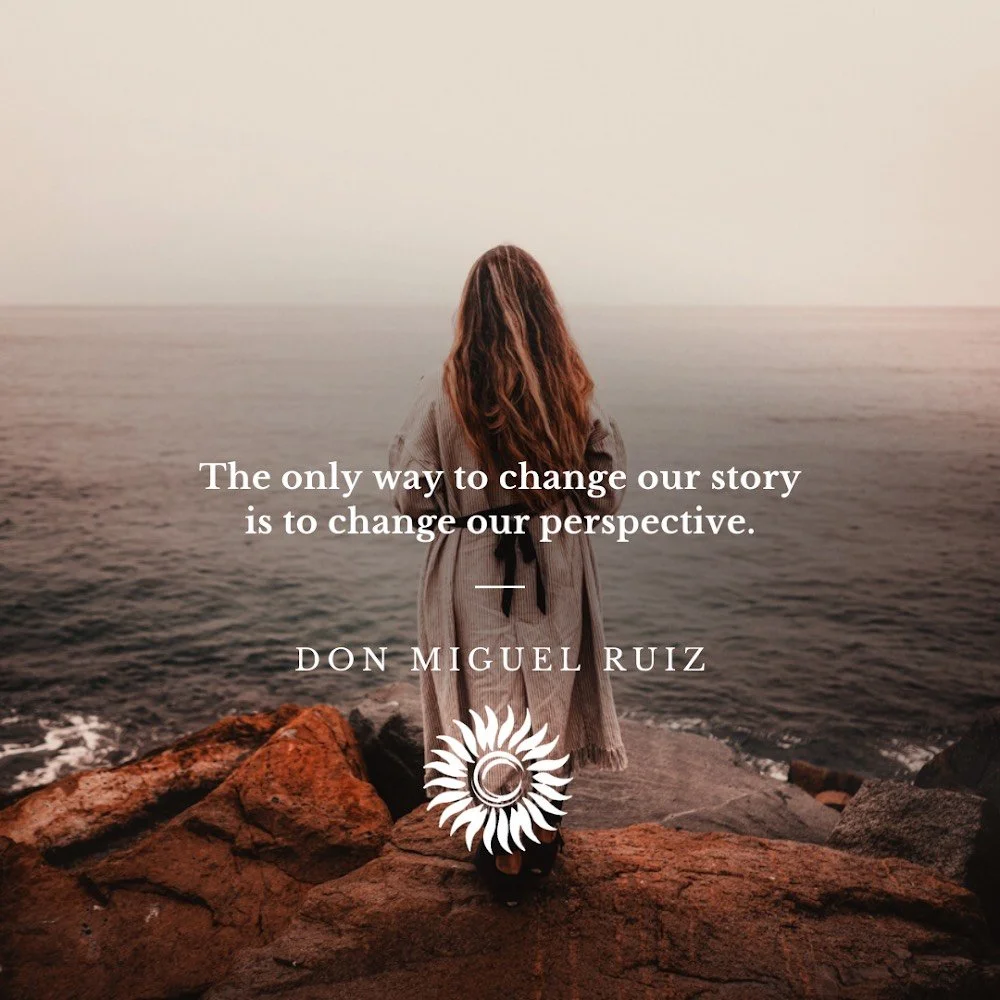Zooming Out A Thousand Times
During this time in history—when the world feels painfully divided, and heartbreaking, fear-inducing events dominate the headlines—I find it helpful to remember a truth held by some of the people I admire most: that every human being is born good.
Despite all the horror and cruelty my father witnessed and was forced to endure, he genuinely believed that each person’s essence is pure—that we are all born perfect, but then we are shaped by our unique experiences and conditioning. This conviction even extended to the German guards that brutalized him during his three years of imprisonment in Nazi forced labor concentration camps. My dad often wondered what he might have been like if he had been swapped at birth with one of those men and raised in their place, shaped by life in Germany between the two World Wars.
Wise psychotherapist and parenting expert, Dr. Becky Kennedy, also holds a deep belief in the fundamental goodness of all people. This conviction is so central to her approach that she titled her best-selling book Good Inside. “When I say, ‘good inside,’” she explains, “I mean that we are all, at our core, compassionate, loving, and generous. The principle of internal goodness drives all of my work—I hold the belief that kids and parents are good inside, which allows me to be curious about the ‘why’ behind their difficult behaviors.”
Oprah agrees as well, which is why she teamed up with the renowned neuroscientist and child trauma expert, Bruce Perry, MD, PhD, to write the book, What Happened to You? Their goal was to make the profound shift from asking “What’s wrong with you?” to asking, “What happened to you?” They share the belief that once people understand how they were adversely affected by their conditioning and the traumatic events in their lives, they can begin to heal and reclaim their fundamental good nature.
There is a powerful episode of author and activist Glennon Doyle’s “We Can Do Hard Things” podcast that addresses the concept of how our behavior is shaped by our conditioning. During the podcast, Doyle shared her first “Letter from Love”—a free-writing practice created by author Elizabeth Gilbert meant to help people access their deepest wisdom.
Co-hosts of the We Can Do Hard Things podcast: Glennon Doyle (left), her wife, Abby Wambach (center), and her sister, Amanda Doyle
Essentially, a “Letter from Love” starts by jotting down the question, “Dear Love—What would you have me know today?” and then allowing the answer to surface on the page. This source of unconditional love you are calling forth should be whatever feels most true to you: God, a spirit guide, your wisest inner self, or the life-force energy of nature.
“What would ‘Unconditional Love’ tell you if it had a voice?” Elizabeth asks. “What does your heart need to hear today, in this exact moment? Where is the suffering, and what does it long to be told? What reassurance or comfort does your spirit need?” She advises anyone who is feeling stuck to imagine what they would say to a beloved child or friend that needed comfort or reassurance. “Write those words—but to yourself.”
The theme that spontaneously arose for Glennon was forgiveness—a concept that she has always struggled with. In her letter, Glennon’s inner wisdom explains that the reason she’s always felt confused about forgiveness is because forgiveness is very different from her preconceived notions of it. Her inner voice said that forgiveness is not about deciding if someone was right or wrong, giving the gift of absolution, or letting go of anger. Rather, it explained, “Forgiveness is about distance. It’s about perspective. It’s about zooming out.”
Glennon’s letter described how when she was a young girl, she loved looking at the pages towards the back of Highlights magazines for children that had “magic pictures” to decipher. There was one she recalled staring at for hours as she tried to figure out what the swirly, glimmering silver lines on a shimmering purple mountain-like shape might be.
When Glennon finally turned the page to view the photo that revealed the answer, she discovered the exact same image, but now zoomed out “a thousand times.” What she’d been staring at for so long was actually a micro-focus on the tiny scales of a dragonfly’s wing. From the wider perspective of the second photo, she could see the entire dragonfly as it sat on a large leaf growing on a huge tree that was part of a vast forest.
Glennon’s wise inner voice explained, “It’s been 40 years, and you still remember both images like they were the most important pictures you’d ever seen. Here’s why: For today, so I could use them to help you understand forgiveness.”
Looking closely at one moment in her life from decades before, Glennon saw herself with her father when she was thirteen. He was yelling and she was afraid. Then the moment zoomed out so that the same scene was part of an entire timeline.
Suddenly, Glennon could see her father when he was a child in the company of his own father. In addition to yelling, there was hitting. Then she saw her father’s father with his father when he was a small, hungry, fearful little boy on a ship fleeing a famine. And back and back it went. “None of it is okay or not okay,” her inner wisdom said, “You just see all of what is and has been.” It went on to explain:
“If you want to know what God is, God is just a better view, and forgiveness is just zooming out a thousand times until you have my view…I see not just your planet but the entire universe, and then the beginning of time till the end of time all at once. And I promise you, from where I stand, every single last one of you makes perfect, perfect sense.
“That’s why people have to think of heaven as so far above, because you know that heaven is just perspective. Someday you’ll have a perspective like mine wide enough to hold the whole world and you’ll forgive everybody. Then it’ll be automatic. It’s just what happens when you can see.
“For now, you just keep zooming out. Just stand back and see everybody, and especially yourself as wide and as high as you possibly can. You make perfect sense. Your father makes perfect sense. Every last one of you does. Every single one of you. It’s just a magic picture and I get to see the second image and that is forgiveness.”




